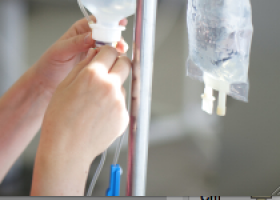
Novartis Oncology welcomes final guidance published today by the National Institute for Health and Clinical Excellence (NICE), in which it recommends exclusively nilotinib for the treatment of imatinib-resistant and imatinib-intolerant Philadelphia chromosome-positive (Ph+) chronic myeloid leukaemia (CML).
Dasatinib and high-dose imatinib were appraised in the same setting but neither has been recommended. This final guidance confirms original recommendations laid out by NICE in a final appraisal determination (FAD) published in August 2011.
CML is one of the most common types of leukaemia in the UK. Although effective, NICE-recommended first-line therapies are available, approximately one in five patients is forced to discontinue first-line therapy due to intolerance or resistance to treatment.
Without access to a tyrosine kinase inhibitor, like nilotinib, in a second line setting, these patients have limited treatment options and may progress to more advanced phases of the disease which are associated with poor survival.
Today’s announcement means that these patients will now have improved access to a second line therapy shown to result in high response and survival rates.
The NICE guidance published today is based on data from Phase I and II studies in CML patients resistant or intolerant to imatinib.2 Data from the Phase II study in this patient population shows that after 24 months of treatment 44% of patients treated with nilotinib 400mg twice daily (BD) achieved complete cytogenic response (CCyR), 84% maintained CCyR and 87% achieved overall survival.
Furthermore, longer-term follow-up data from the study presented at the American Society of Hematology Annual Meeting in 2011 showed a 48-month overall survival rate of 78%.
“This recent ruling from NICE is excellent news for patients with chronic myeloid leukaemia. NICE have confirmed that nilotinib is cost-effective for patients not responding optimally to initial treatment with imatinib,” said Professor Richard Clark, Professor of Haematology and Consultant Haematologist at the Royal Liverpool University Hospital.
“Nilotinib is now recommended for such patients, and this ends a period of uncertainty about whether the NHS would support its costs. This means that all patients in England and Wales who require nilotinib as a second line treatment can receive this on the NHS. Nilotinib is already available in Scotland for such patients.”
In order to maximise and ensure CML patients’ access to nilotinib in this setting, Novartis Oncology worked closely with the Department of Health (DH) to establish a Patient Access Scheme (PAS) for nilotinib.
“At Novartis, our priority is to ensure that as many patients as possible can benefit from innovative therapies, like nilotinib, which we have developed to address unmet needs in difficult-to-treat diseases,” said Panos Alexakos, Oncology General Manager, Novartis UK & Ireland. “By working in partnership with the DH we have succeeded in ensuring that patients and health services benefit from the most cost-effective option available for first- and second-line Ph+ CML.”
Source: Novarits
We are an independent charity and are not backed by a large company or society. We raise every penny ourselves to improve the standards of cancer care through education. You can help us continue our work to address inequalities in cancer care by making a donation.
Any donation, however small, contributes directly towards the costs of creating and sharing free oncology education.
Together we can get better outcomes for patients by tackling global inequalities in access to the results of cancer research.
Thank you for your support.